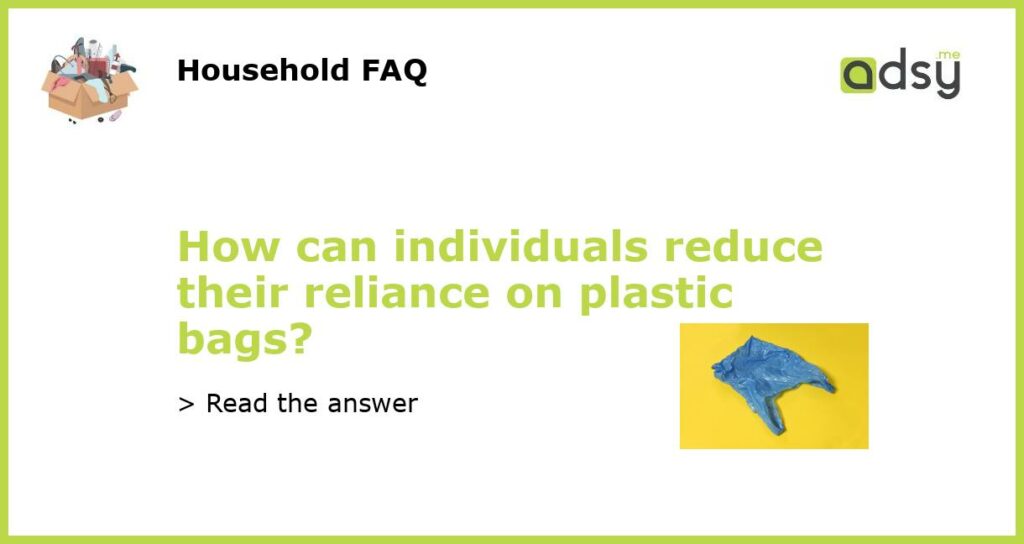Why is reducing reliance on plastic bags important?
Plastic bags have become synonymous with convenience. They are lightweight, cheap to produce, and easy to carry. However, these seemingly benign advantages come at a high environmental cost. Plastic bags are not biodegradable and can take hundreds of years to decompose in landfills. Moreover, they are notorious for their harmful impact on wildlife, with numerous cases of marine animals and birds being affected by plastic bag ingestion or entanglement. As awareness about the negative environmental consequences of plastic bags grows, individuals are increasingly seeking ways to reduce their reliance on them.
Switch to reusable bags
The most straightforward way to reduce reliance on plastic bags is to switch to reusable bags. Instead of taking a plastic bag when you shop, bring your own reusable bag. Reusable bags are typically made of sturdier materials such as canvas or nylon and can withstand multiple uses. Many local grocery stores and retailers offer reusable bags for a nominal fee. Some stores even incentivize the use of reusable bags by offering discounts or rewards. By using a reusable bag, you can significantly reduce the number of plastic bags entering circulation and minimize the negative impact on the environment.
Avoid single-use plastics
In addition to plastic bags, single-use plastic items such as plastic cutlery, straws, and water bottles contribute to the growing plastic waste problem. By opting for alternatives to single-use plastics, you can further reduce your reliance on plastic bags. Carry a reusable water bottle and fill it up instead of buying bottled water. Use metal or bamboo cutlery instead of plastic when eating on the go. Saying no to plastic straws and bringing your own reusable straw is another simple way to make a positive environmental impact. Making these small changes in your daily life can add up and make a significant difference.
Support sustainable packaging
When shopping, look for products that use sustainable packaging instead of plastic. Many companies are now adopting eco-friendly alternatives such as paper-based or biodegradable packaging. By choosing products packaged in sustainable materials, you are sending a message to manufacturers and retailers that you prioritize sustainability and are willing to support environmentally conscious practices. Furthermore, be mindful of excessive packaging. Avoid products that are overly packaged or packaged in unnecessary layers of plastic. By purchasing products with minimal packaging, you are contributing to reducing the overall demand for plastic bags and packaging materials.
Spread awareness and advocate for change
Reducing reliance on plastic bags requires a collective effort. Use your voice to spread awareness about the environmental impact of plastic bags and the alternatives available. Educate your friends, family, and community about the benefits of using reusable bags and avoiding single-use plastics. Get involved in local initiatives and organizations that advocate for reducing plastic waste. Support legislation that promotes sustainable practices, such as plastic bag bans or fees. By engaging in advocacy and spreading the message, you can help create a culture that values sustainable alternatives to plastic bags and actively seeks ways to reduce reliance on them.
Make a difference today
Reducing reliance on plastic bags is an urgent matter that requires immediate action. By switching to reusable bags, avoiding single-use plastics, supporting sustainable packaging, and spreading awareness, individuals can make a significant impact in reducing plastic waste. Each small change adds up, and together we can create a more sustainable future for our planet.






